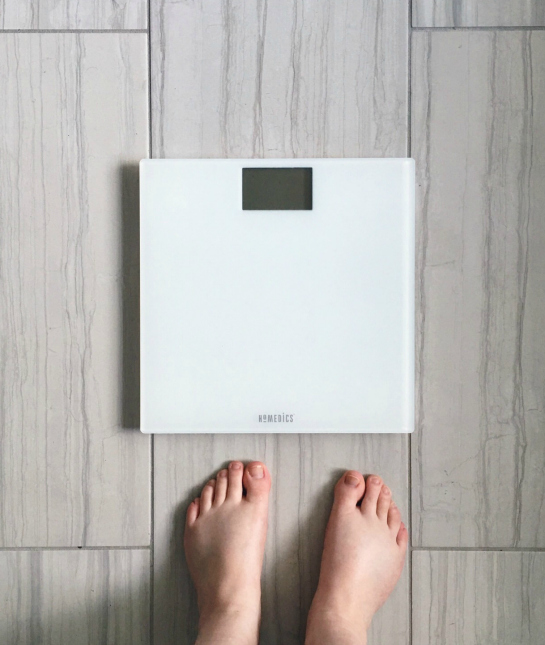
They Make Time With Friends

It's increasingly possible to live well past our 90s, if current trends hold. In fact, the population of people in the U.S. who are 100 years or older (aka centenarians) grew nearly 44 percent from 2000 to 2014, according to the Centers for Disease Control and Prevention. But how are so many people making it to these very old ages? In addition to access to improved medicine, vaccines and antibiotics, they've got habits that lead to good health.
For example, they have friends. Research found that people with strong social relationships increase their odds for survival over a certain time by 50 percent.
They Exercise

Of course, those who live long tend to increase their odds by exercising. The CDC estimates that people who get at least seven hours of exercise per week have a 40 percent less chance of dying early than those who exercise 30 minutes or less per week.
They Exercise Their Brains

Strong brains are essential to good physical health, but you can't take your brain to a gym and work it out. You can, however, exercise it with activities like crossword puzzles, sudoku, taking a class and learning a new language. Playing chess is also good, as is learning how to use new technology. Whatever gets the brain struggling and thinking a little will make it stronger.
They're Positive

A positive attitude might get you into the later years more than anything else you can do. A study that looked at traits of genetically homogenous people between 95 and 107 years old found that a positive attitude and sense of humor set them apart from the control group.
They Manage Stress

The ability to manage stress reduces wear and tear on the body, thereby increasing the chances of a longer life. This means being able to stay calm, forgoing unnecessary arguments and trying to create a life that is as low-stress as possible. Life without chronic stress means a better protected immune system, lower rates of heart disease and diabetes, obesity and high blood pressure.
They Eat Well

Studies in gut health found compelling evidence that a healthy gut is key in a long life and a healthy one. This means eating fiber, fresh fruits and vegetables, drinking lots of water and eating foods rich in probiotics, like yogurt.
They've Found Their Healthy Weight

While obesity has its health risks, not every obese person is unwell. There's a right weight for everyone's optimal health. This is true for those who live longer. For those who have lived long lives, a healthy-for-them weight appears to have played a role.
They're Careful About Pills

Sometimes less is more. For people in their 90s and beyond, this is especially true. While health checkups and medicine recommendations should be taken seriously, being choosy about which pills you take, how much time you spend at the doctor and your attitude toward healthcare may actually make a big difference.
They Keep a Schedule

People who live long lives tend to have something to live for, whether it's work, a life partner, an active social life or a compelling interest. Waking up in the morning with something to do keeps you positive, feeling useful and necessary—all things that contribute to a physically healthier life and even more years in front of you.
They Get Good Sleep

Good sleep leads to optimal health at any age. It's necessary to protect against illnesses, accidents and even things like depression. For people who live really long lives, good and plentiful sleep has helped them get there.
They Don't Overeat

Leaving a little something on your plate when you eat may lead to a longer life. Studies of long-living Japanese people suggest that their habit of stopping at 80 percent full is helping them age into the triple digits. St. Louis University researchers even found in a study that eating less ages you more slowly.
They Have Sex

Look, sex isn't everything. But it's apparently most things, including getting you to live a longer life. Good sex two or three times each week can add three years to your life. It also burns calories, lowers blood pressure, helps you sleep better and supports your immune system—all things that are part of long, healthy lives.
They Skip TV

We're in the Golden Age of TV, and yet it's possibly killing us. Or, at a minimum, it's doing nothing to extend our lives significantly. A 2010 study concluded that those who watch TV more than four hours per day were nearly half as likely to die from, well, anything than people who watched less. So put down that remote!
They Stay Out of the Sun

Not only does unprotected sun exposure make you look older, it also puts you at risk for early death conditions like skin cancer. To ensure a long, healthy life, stay out of the sun as much as possible. And in those times where you can't avoid it, use plenty of sunscreen on top of what you should be applying daily.
They Drink In Moderation

In moderate amounts, alcohol can be good for our health (for those who can drink it responsibly). But overdoing it has the opposite effect, leading to unhealthy consequences like weight gain. A decade-old study in the Journal of the American College of Cardiology found that light drinking (one a day for women, two a day for men) benefited the heart.
They Quit Smoking

Smoking takes an immediate toll on the body, and for long-term smokers this adds up. Nearly 10 years of life expectancy is lost for people who smoke over decades. Meanwhile, the benefits of quitting before 35 can get nearly that entire decade back. For really long lives, smoking is way too risky.




